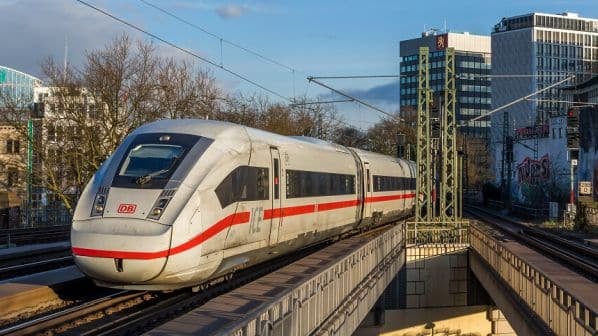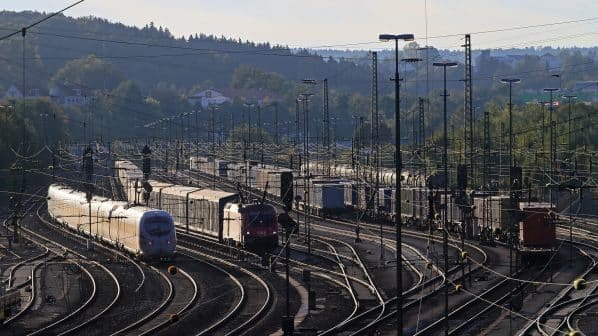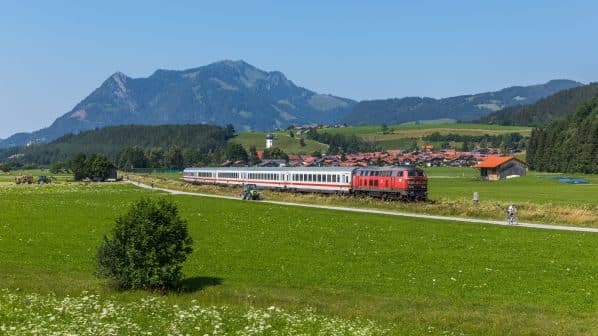THE long-distance passenger business of German Rail (DB) has reported worsening punctuality in the first quarter of 2023, despite efforts to improve it following widespread criticism from politicians and the travelling public in recent years.
DB Long Distance services are recorded as being on time if they arrive with 6 minutes of the scheduled time. During the first three months of 2023, 73.2% of trains were on time in January, dropping to 70.7% in February and 68.4% in March.
DB has previously told local media it is aiming for 70% as a minimum in 2023, after achieving a punctuality score of only 65.2% in 2022.
The punctuality of long-distance services is dependent on train performance at major stations and junctions, where late running on one line can easily have a knock-on effect on others.
While in some cases trains operating on high-speed lines could potentially run faster than scheduled to recover time, this appears to happen rarely, possibly to avoid consuming more energy when running at higher speeds.
Infrastructure manager DB Network has announced plans for an intensive programme to upgrade key lines in order to create a high-performance network. Upgrade work has yet to be completed on any major route, however.
Regional services are not impacted to the same degree by infrastructure problems or congestion on the network. Punctuality results released by DB Regio for the first three months of 2023 were in the range of 92.6% to 92.8%.
Solar power for traction supply
Meanwhile, DB has announced that green electricity produced by solar generation is being fed directly into its traction power supply grid for the first time following the commissioning of a ground-mounted photovoltaic installation at Wasbek in the state of Schleswig-Holstein.
Electricity generated at the 40ha site is fed directly into the 16.7Hz traction power supply network via the DB converter plant in Neumünster.
Wasbek is expected to generate 38GWh of energy a year, which is the electricity requirement of the German traction power supply network for one day. The new solar plant is expected to save emissions of up to 18,000 tonnes of CO2 a year.
DB says that 65% of its traction current is now provided by renewables, including wind and hydro-electric power, compared with 46% of the public electricity supply in Germany.
Long-distance passenger services have been powered by 100% green electricity since 2018, and by 2038 DB plans to have 100% of its annual traction current requirement of 10TWh provided by renewables.
To supply all DB stations, offices and other facilities with 100% green electricity by 2025, DB Energy is restructuring its portfolio of power plant and supply contracts to gradually replace electricity generated by burning fossil fuels.
“DB is already Germany’s largest user of green electricity,” says DB board member for infrastructure, Mr Berthold Huber.
“At Wasbek, we are now feeding solar power directly into the traction power grid for the first time in a pilot project. In doing so, we at DB are consistently continuing on our path of continuously increasing the proportion of green electricity in our traction current mix.”




